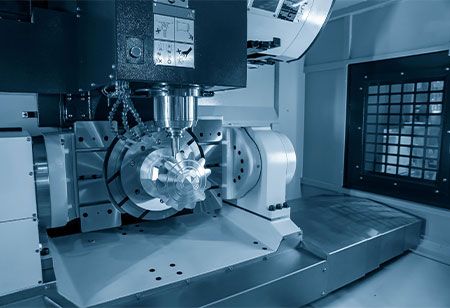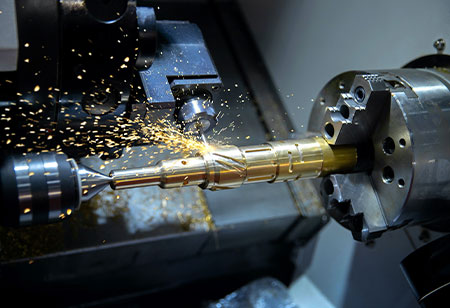
Are you looking for precision in your manufacturing process? Whether you're crafting intricate components for the aerospace industry or creating custom parts for consumer electronics, achieving the highest level of accuracy is crucial. That’s where CNC machining comes into play—a technology that has revolutionized the way you approach manufacturing. Understanding the essential techniques of CNC machining not only helps you produce parts with pinpoint precision but also gives you a competitive edge in the marketplace. Let’s dive into what CNC machining is, how it ties into precision manufacturing, and the key techniques that make it so indispensable.
Computer Numerical Control (CNC) machining is a sophisticated manu- facturing process where computers control machine tools to create parts with extreme accuracy. Unlike traditional machining, which relies on manual operation, CNC machining automates the process using precise programming and digital designs. This allows you to manufacture complex parts consistently, efficiently, and with a level of precision that's nearly impossible to achieve manually.
When you opt for CNC machining services, you’re tapping into a world of possibilities. CNC machining services utilize advanced software and state-of-the-art machinery to produce everything from prototypes to final products. Whether you're working with metals, plastics, or composite materials, CNC machining can handle it all, delivering high-quality results every time.
Precision manufacturing is the process of producing parts and components to exact specifications with minimal tolerances. In other words, it’s all about creating products that meet the most stringent quality standards. When you think of precision manufacturing, imagine industries where even the smallest deviation from the intended design could have catastrophic consequences—such as in medical devices, aerospace, and automotive sectors. The key to precision manufacturing lies in the ability to maintain consistent accuracy, and this is where CNC machining shines.
It plays an essential role in precision manufacturing by offering unparalleled control over the production process. With CNC technology, you can program machines to follow exact dimensions and geometries, ensuring that each piece is identical to the last. This level of precision reduces waste, minimizes errors, and increases efficiency—all of which are essential in maintaining high-quality standards.
 Essential CNC Machining Techniques for Precision Manu- facturing
Essential CNC Machining Techniques for Precision Manu- facturingTo achieve the best results in precision manufacturing, it's important to familiarize yourself with some of the most critical CNC machining techniques. These techniques optimize the manufacturing process to ensure products meet the highest quality standards.
Milling is one of the most common CNC machining techniques. It removes material from a workpiece using rotary cutters. This process can create different shapes, from simple flat surfaces to complex geometries. With CNC milling, you can achieve tight tolerances and intricate details. Hence, milling is ideal for producing components that require high precision.
Turning is another fundamental CNC machining process. The workpiece is rotated while being shaped by a cutting tool. This technique is particularly effective for creating cylindrical parts, such as shafts and rods. CNC turning enables you to produce parts with smooth finishes and precise dimensions, making it an essential technique in precision manufacturing.
Drilling is a CNC machining technique used to create holes in a workpiece. While drilling may seem straightforward, achieving precision in this process is crucial, especially when the holes must align perfectly with other components. CNC drilling machines are capable of producing holes with exact depths and diameters, ensuring that each hole meets the required specifications.
Grinding is a finishing process that involves the removal of material from the surface of a workpiece using an abrasive wheel. This technique is often used to achieve extremely tight tolerances and high-quality finishes on parts that require smooth surfaces. CNC grinding machines offer the precision and consistency needed for parts that must meet stringent quality standards.
EDM is a specialized CNC machining technique that uses electrical discharges to shape a workpiece. This process is particularly useful for machining hard materials or when creating intricate shapes is difficult to achieve with traditional methods. EDM allows you to produce parts with complex geometries and fine details, making it an invaluable technique in precision manufacturing.
This machining involves using CNC machines that operate on multiple axes simultaneously. While traditional CNC machines typically operate on three axes (X, Y, and Z), multi-axis machines can operate on four, five, or even more axes. This capability allows you to create complex parts in a single setup, reducing production time and ensuring that every angle and curve is perfectly executed. Multi-axis machining is particularly beneficial for automotive, aerospace manufacturing, and other industries requiring precision.
Mastering CNC machining techniques is essential if you want to excel in precision manufacturing. By leveraging processes like milling, turning, drilling, grinding, EDM, and multi-axis machining, you can ensure that every part you produce meets the highest standards of quality and accuracy. Whether you're producing prototypes or final products, CNC machining services offer the tools and technology you need to achieve precision manufacturing at its finest. Embrace these techniques, and you'll find that the possibilities for innovation and excellence are endless.
We use cookies to ensure you get the best experience on our website. Read more...